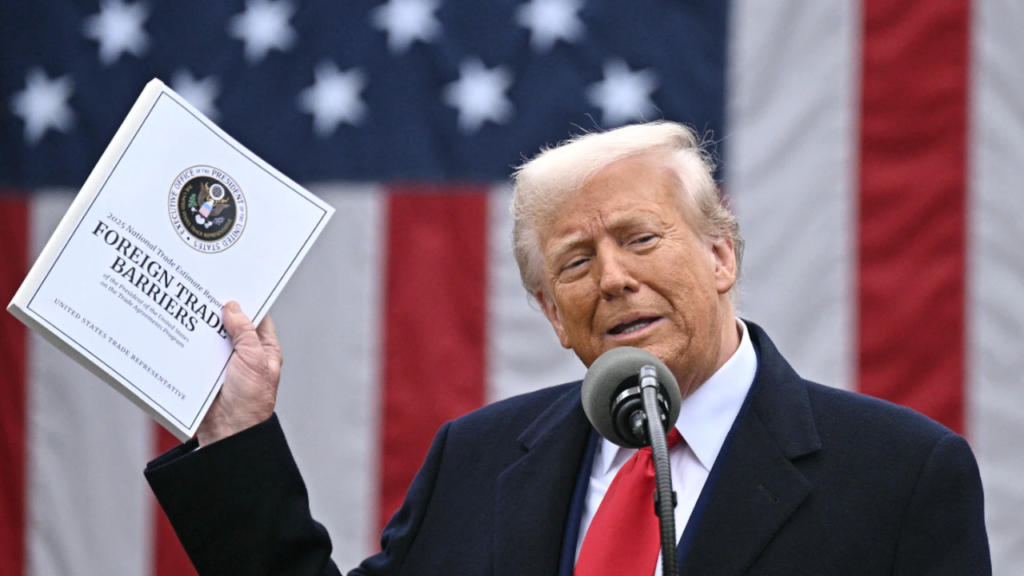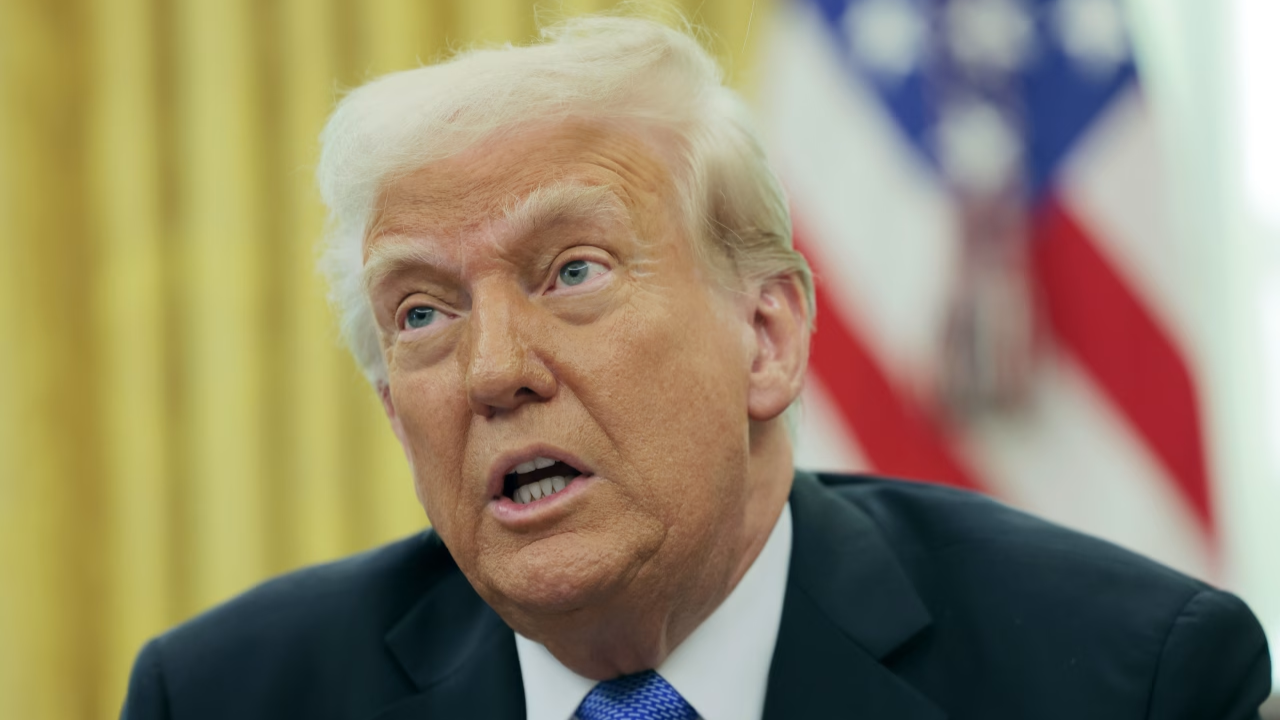Throughout history, dangerous economic theories have caused immense harm to countries and their citizens. From Marxism to other forms of anti-capitalist ideologies, these beliefs have led nations into deep poverty.
However, rarely have zero-sum thinking and scapegoating caused such economic havoc in such a short period as we’ve seen since Trump’s “Liberation Day” announcement.
Zero-sum thinking, a core principle behind Trump’s tariff policies, is a dangerous fallacy that sees economic growth as a zero-sum game—one person’s gain is always another person’s loss. Trump’s approach to international trade is grounded in this flawed logic.
What is Zero-Sum Thinking?
Zero-sum thinking refers to the idea that in the economy, the success of one nation or individual comes at the expense of another. Anti-capitalists, such as Trump, often adhere to this view, failing to recognize that free trade can benefit both parties involved.
In Trump’s worldview, one party’s gain in trade always comes at the cost of the other. He refuses to acknowledge the potential mutual benefits of global trade agreements.
This kind of thinking often pairs with scapegoating, where political leaders blame foreign countries for the problems they face at home.
This approach is familiar in countries like Russia, Venezuela, Cuba, North Korea, and Iran, where their governments often attribute domestic issues to the impact of Western sanctions. Similarly, many African nations blame their poverty on the legacy of colonialism.
Trump’s Shifting Political Views

Trump’s political beliefs have been fluid over the years, shifting depending on the situation. In the 1990s, for example, Trump was in favor of reversing tax cuts and raising taxes on the wealthy.
He even endorsed policies that were considered left-wing at the time, such as imposing a one-time tax on the rich and advocating for employer-funded universal health insurance.
Despite this evolution in his views, one of the few constants in Trump’s political ideology has been his tendency to blame foreign nations for the struggles of the United States.
In the 1980s, Trump criticized Japan for the U.S. trade deficit and accused it of unfair trade practices. Later, he embraced economist Peter Navarro’s ideas, who blamed China for America’s economic problems in his book Death by China.
Navarro’s influence led to Trump’s embrace of tariffs as a tool for economic policy, but the disastrous results of these tariffs have forced Navarro into a less prominent role in Trump’s administration.
A Case Study: Vietnam vs Nepal
To understand how blaming foreign countries for internal economic failures can hinder progress, let’s look at two contrasting Asian nations: Vietnam and Nepal. Both countries faced severe economic challenges, yet their responses have been strikingly different.
In the 1980s, Vietnam was one of the poorest countries in the world, facing extreme poverty levels. However, the Vietnamese leadership did not blame external forces like the U.S. or France for their struggles.
Instead, they recognized that their centrally planned economy was the root of their issues. By the end of the 1980s, they began opening up their economy and introducing private property rights.
Today, Vietnam boasts one of the most open economies in the world, and its poverty rate has dropped dramatically, from 80 percent to just 3 percent.
In stark contrast, Nepal, which remains one of the poorest countries in Asia, has failed to break free from the trap of zero-sum thinking. Nepal’s economy is plagued by high tariffs and a lack of economic openness.
For example, a BMW X5 can cost as much as 450,000 USD in Nepal due to exorbitant import duties and taxes. The country’s political leadership often points to foreign nations as the cause of Nepal’s economic struggles, espousing ideologies that hinder progress.
Trump’s Finger-Pointing Is Absurd
Trump’s finger-pointing and accusations about foreign exploitation are deeply misguided. American economist Mark Skousen has dismissed Trump’s claims, pointing out that the U.S. is home to eight of the ten richest companies in the world.
The U.S. remains a global economic powerhouse, and Trump’s repeated complaints about trade imbalances, such as his criticism of Germany’s car exports to the U.S., are based on an incomplete understanding of the global economy.
Trump has often claimed that tariffs are “the most beautiful word in the dictionary,” which is as absurd as declaring “taxes” to be the best word.
This rhetoric reveals his misunderstanding of the real effects of tariffs—namely, that they increase costs for consumers and disrupt markets.
The Road Ahead
Despite his misguided beliefs, there is hope that the realities of global trade and economic principles will eventually guide Trump away from these harmful policies.
Recently, Trump has made multiple exceptions to the tariffs he introduced on “Liberation Day,” signaling that the market forces are slowly shaping his policies.
The unfortunate truth is that Trump’s zero-sum thinking could continue to cause damage unless his administration comes to terms with the fact that global trade benefits everyone.
Free markets, when open and transparent, allow nations to thrive together, rather than at the expense of one another.
The U.S. needs to embrace the opportunities that come with international cooperation and leave behind the fallacy of zero-sum thinking that has led to so much economic damage.
Disclaimer- Our team has thoroughly fact-checked this article to ensure its accuracy and maintain its credibility. We are committed to providing honest and reliable content for our readers.






